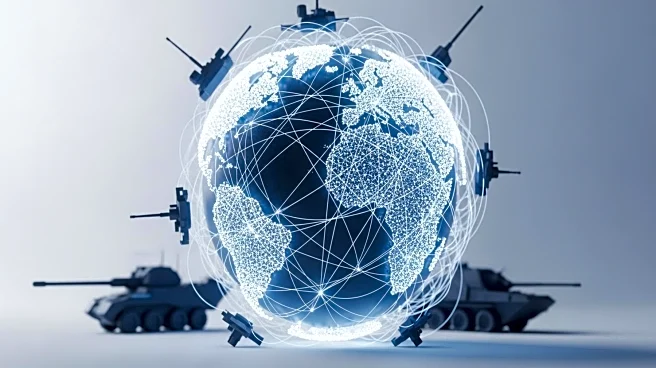What is the story about?
What's Happening?
President Trump has proposed significant changes to NATO's defense spending expectations, pushing for a new benchmark of 5 percent of GDP by 2035. This move follows his previous criticism of NATO members for not meeting the 2 percent GDP target for defense spending. Former NATO Secretary General Jens Stoltenberg revealed in his upcoming book that Trump had suggested excluding Norway from NATO due to its insufficient defense budget. Stoltenberg's book details his concerns during Trump's presidency, particularly during a 2018 summit where Trump threatened to withdraw U.S. support unless European allies increased their defense budgets.
Why It's Important?
The push for increased defense spending by NATO members reflects ongoing tensions within the alliance regarding financial contributions and military readiness. Trump's stance has raised questions about the U.S.'s commitment to NATO, potentially affecting the alliance's cohesion and strategic operations. European countries may face pressure to adjust their defense budgets, impacting national economies and military strategies. The call for self-reliance could lead to shifts in geopolitical alliances and defense policies, particularly in Eastern Europe.
What's Next?
With Stoltenberg stepping down in 2024, Trump continues to influence NATO's direction, advocating for self-reliance and increased defense spending. The alliance's members are expected to meet the 2 percent target, with discussions ongoing about the feasibility of the 5 percent benchmark. Future NATO summits will likely address these financial expectations and explore strategies to maintain unity and effectiveness amid changing global security dynamics.
Beyond the Headlines
Stoltenberg's revelations highlight the complex relationship between the U.S. and NATO during Trump's presidency, underscoring the challenges of balancing national interests with collective security commitments. The book provides insight into the diplomatic efforts required to navigate these tensions and the potential long-term implications for NATO's role in global security.















